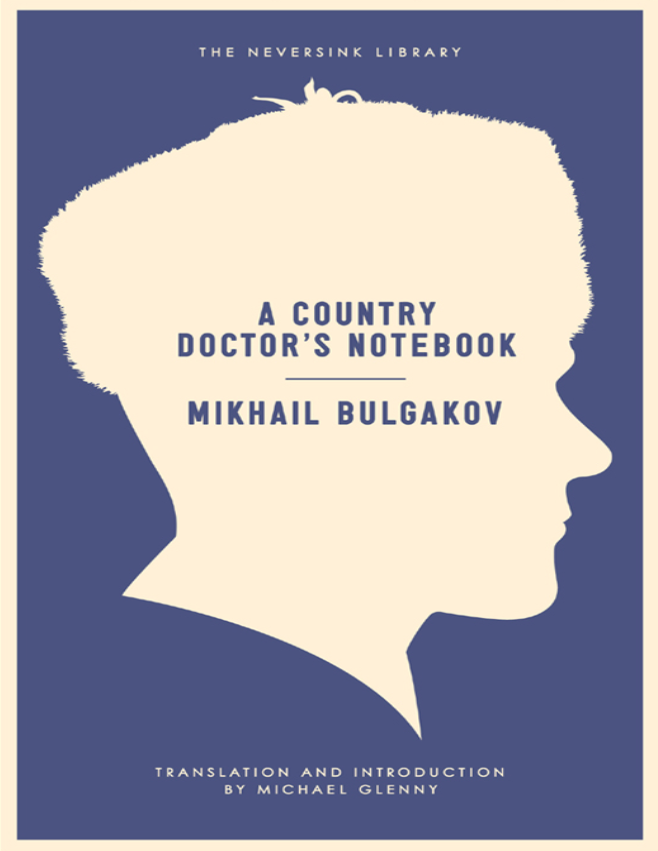Newly released
This book is new and will be uploaded as soon as it becomes available to us and if we secure the necessary publishing rights.

A Country Doctor's Notebook Book PDF
(0)
Author:
Mikhail BulgakovNumber Of Reads:
87
Language:
English
Category:
literatureSection:
Pages:
151
Quality:
excellent
Views:
926
Quate
Review
Save
Share
Book Description
A Country Doctor's Notebook is a blend of autobiography and fiction, showcasing the early work of Mikhail Bulgakov, the renowned author of "The Master and Margarita." The book takes readers back to a time when Bulgakov was just beginning his writing career and offers a glimpse into a nation that had been divided by centuries of unequal progress.
In 1916, a 25-year-old newly qualified doctor named Mikhail Bulgakov was assigned to a remote area in the Russian countryside. Despite holding a medical diploma, he lacked practical experience, making the challenges he encountered even more daunting. The vast and sprawling territory he was assigned to cover was devoid of modern conveniences like motor cars, telephones, and electric lights.
A Country Doctor's Notebook comprises stories inspired by the two years Bulgakov spent in this rural setting. He candidly reflects on his feelings of inadequacy as a young doctor and skillfully brings to life humorous and touching episodes, such as peasants applying medicine to their clothes rather than their skin. Additionally, he recounts finding himself tasked with delivering a baby, despite having only read about the procedure before.
This work offers a unique perspective on Bulgakov's early writing style, revealing a master at the dawn of his craft. The book delves into the challenges of practicing medicine in a remote and underdeveloped region, while also shedding light on the stark contrast between traditional rural life and the advancements of modern society.
Mikhail Bulgakov
Mikhail Avanisevts Bulgakov, a Russian novelist and playwright, was born on May 15, 1891, in Kyiv, and he passed away on March 10, 1940, in Moscow. Initially, Bulgakov worked as a doctor, but he is best known for his novel "The Master and Margarita," which was published posthumously, three decades after his death. He was born into the family of a professor at the Kyiv Religious Academy, and he spent his childhood and youth in Kyiv. This city would later serve as a significant setting in his novel "The White Guard," becoming an expression of his deep connection to family and homeland, as evident in his article "Kyiv-City" from 1923.
Bulgakov attended the medical faculty of Kyiv University in 1909 and graduated with distinction in 1916, earning a degree as a medical doctor. During the 1920s, he explored the theme of social upheaval and its impact on human nature through satirical essays, stories, and anecdotes. Works like "Satanic Show" (1924) and "Deadly Eggs" (1925) exemplify his unique satirical literary style, which both fascinated and alarmed his contemporaries.
"The Heart of a Dog" (1925) was another satirical novel by Bulgakov that reflected the same direction of his sharp wit. Despite admiration from some, others refused to publish these works due to their scathing critique of the era.
The turning point in Bulgakov's career came with the publication of his novel "The White Guard." In 1925, the novel's two parts were published in the magazine "Russia," and it later gained further acclaim when adapted into the play "Days of the Turbins" at the Moscow Art Theater MKHAT in 1926. The play's success with audiences, including the attention of Stalin himself, was met with harsh criticism from the authorities, who accused Bulgakov of anti-Soviet sentiments. This led to the play's temporary withdrawal from the theater program in 1929, though it was shown again in 1932.
Bulgakov's international fame, however, came with his novel "The Master and Margarita," an extraordinary work that encompassed the themes from his previous creations and the essence of Russian and world classical literature. While the novel gained immense recognition globally, it faced censorship in the Soviet Union and was only published there in an abridged edition in 1966, long after the author's passing. Bulgakov consciously crafted this novel as a culminating masterpiece, blending various motifs and literary influences, solidifying his status as a prominent figure in Russian literature.
Book Currently Unavailable
This book is currently unavailable for publication. We obtained it under a Creative Commons license, but the author or publisher has not granted permission to publish it.
Rate Now
5 Stars
4 Stars
3 Stars
2 Stars
1 Stars
A Country Doctor's Notebook Quotes
Top Rated
Latest
Quate
Be the first to leave a quote and earn 10 points
instead of 3
Comments
Be the first to leave a comment and earn 5 points
instead of 3